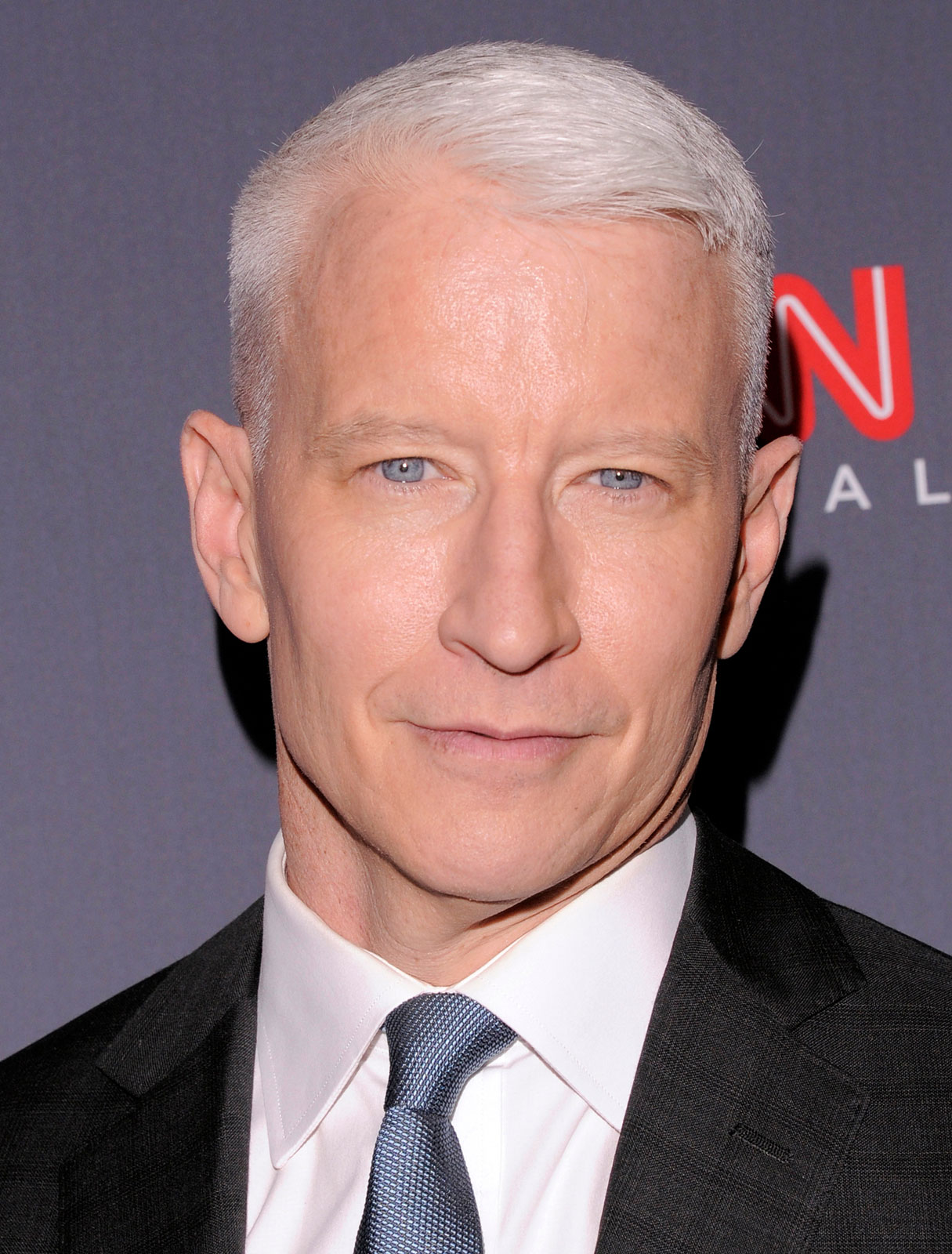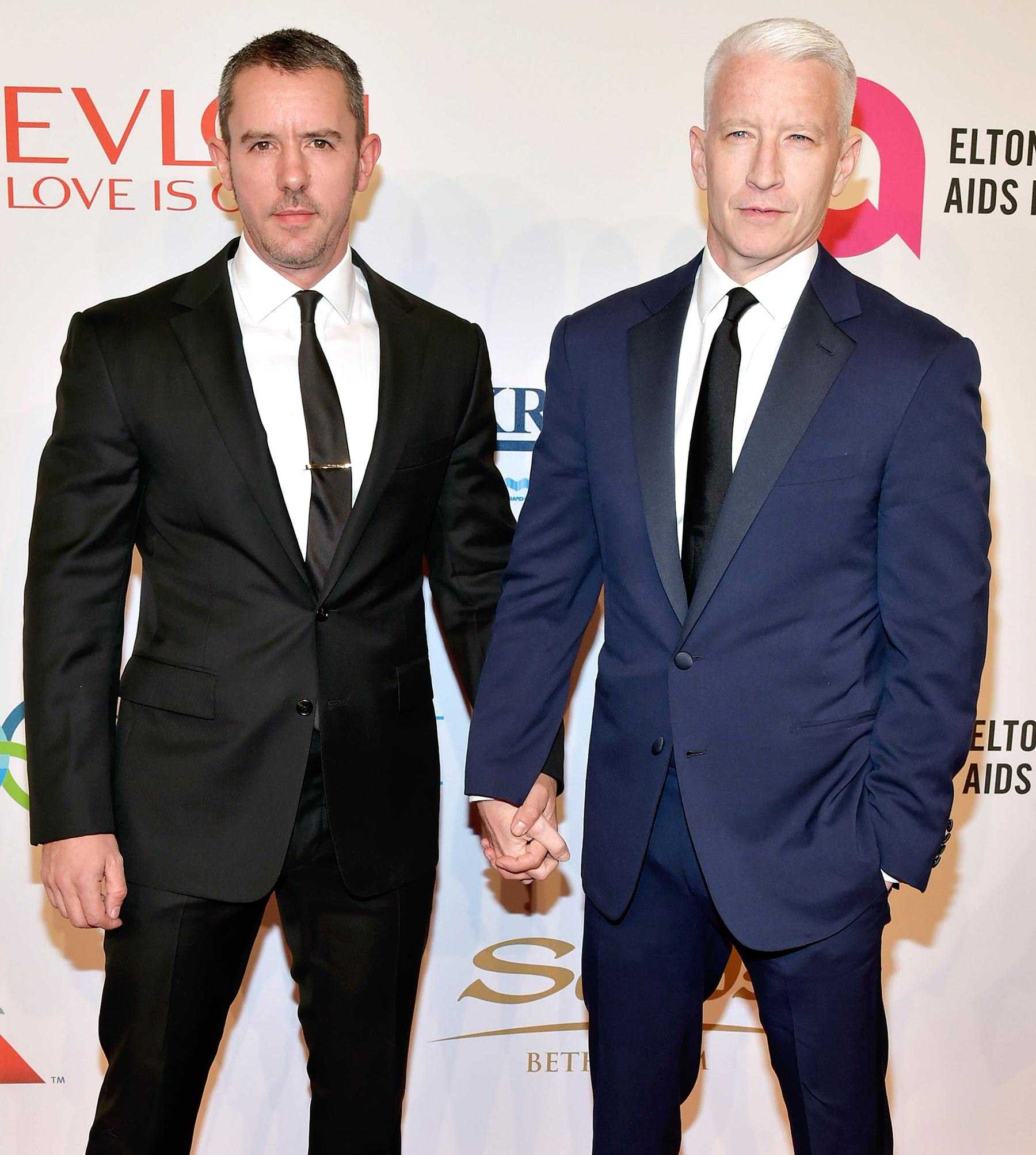When you hear the name Anderson Cooper, you're probably thinking of a man who's synonymous with breaking news, late-night talk shows, and that unmistakable journalistic flair. But who exactly is Anderson Cooper? Is he just the guy on your TV screen delivering the day's headlines? Well, buckle up, because we're about to take you on a journey through his life, career, and everything in between. This isn’t just a bio—it’s a story of resilience, ambition, and an unrelenting pursuit of truth.
Anderson Cooper isn’t your run-of-the-mill news anchor. He’s a household name, a face that millions trust to deliver the facts without flinching. But there’s so much more to him than what you see on CNN. From his early years growing up in one of America's most prestigious families to his rise as a globally recognized journalist, Cooper's life is a fascinating tapestry of privilege, struggle, and hard-won success.
So, why should you care about Anderson Cooper's bio? Because understanding his journey gives you insight into the man behind the camera. It’s not just about his achievements; it’s about how he got there and the challenges he faced along the way. Let’s dive in and uncover the real Anderson Cooper, shall we?
Early Life and Family Background
Before he was the Anderson Cooper we know today, he was born into a world of privilege and wealth. Born on June 21, 1967, in New York City, Anderson Hays Cooper came from a lineage of influential figures. His mother, Gloria Vanderbilt, was a famous artist and socialite, while his father, Wyatt Emory Cooper, was a writer and novelist. This mix of creativity and intellect would later shape Anderson's career path in unexpected ways.
But life wasn’t all glitz and glamour. Anderson’s childhood wasn’t without its hardships. At the tender age of 10, he tragically lost his father in a plane crash. This early loss taught him resilience and the importance of perseverance—a lesson that would stay with him throughout his life.
Growing Up in Privilege
Anderson Cooper’s upbringing was anything but ordinary. He grew up surrounded by art, culture, and intellectual pursuits. His mother’s connections in the art world exposed him to a world of creativity and innovation, which would later inspire his own creative endeavors. Yet, despite his privileged background, Cooper never let it define him. Instead, he used it as a springboard to explore the world beyond his comfort zone.
Did you know? Anderson Cooper attended Yale University, where he majored in Political Science. It was during this time that he began to develop his interest in journalism, laying the foundation for the career he would later pursue.
Career Beginnings: From War Zones to CNN
Anderson Cooper’s career didn’t start with the glitz and glamour of television. In fact, his early years in journalism were marked by grit and determination. After graduating from Yale, Cooper embarked on a journey that would take him to some of the most dangerous places in the world. He worked as a freelance reporter, covering conflicts in places like Somalia, Bosnia, and Iraq.
These experiences weren’t just about reporting the news; they were about bearing witness to the human condition. Cooper’s commitment to truth and justice was evident in every story he told. It was this dedication that eventually caught the attention of CNN, leading to his appointment as a correspondent in 1997.
The Rise of Anderson Cooper 360
Fast forward to 2003, and Anderson Cooper found himself at the helm of his own show, "Anderson Cooper 360." This late-night news program quickly became a staple in American households, offering viewers a deeper look into the stories that mattered most. Cooper’s ability to connect with his audience, combined with his journalistic integrity, made him a trusted voice in the world of news.
But it wasn’t all smooth sailing. The transition from field reporter to studio anchor was challenging. Cooper had to adapt to the demands of a 24-hour news cycle while maintaining the authenticity that made him stand out. It was a balancing act that required both skill and resilience.
Personal Life: Beyond the Spotlight
While Anderson Cooper’s professional life is well-documented, his personal life remains somewhat of a mystery. Known for his privacy, Cooper rarely discusses his personal relationships in public. However, in 2012, he made headlines when he publicly confirmed his homosexuality in an email to journalist Andrew Sullivan. This moment was significant not just for Cooper but for the LGBTQ+ community as a whole.
Cooper’s openness about his sexuality was met with widespread support, highlighting his role as a trailblazer in the media industry. It was a reminder that even the most public figures have personal struggles and triumphs that shape who they are.
Anderson Cooper's Family Life
Despite his busy career, Anderson Cooper has always maintained strong ties with his family. His relationship with his mother, Gloria Vanderbilt, was particularly close. In fact, after her passing in 2019, Cooper spoke candidly about the impact she had on his life. He described her as a woman of immense creativity and strength, qualities he admired and sought to emulate in his own life.
Cooper’s family background continues to influence his work and worldview. His mother’s artistic legacy and his father’s literary pursuits serve as a constant reminder of the importance of creativity and storytelling in his life.
Anderson Cooper's Impact on Journalism
Anderson Cooper’s influence on the world of journalism cannot be overstated. His commitment to reporting the truth, even in the most challenging circumstances, has set a standard for journalists around the world. He’s not just a news anchor; he’s a storyteller who brings humanity to the forefront of every story he covers.
Cooper’s impact extends beyond the newsroom. He’s a vocal advocate for press freedom and the importance of a free and independent media. In a world where journalism is often under attack, Cooper’s voice serves as a reminder of the vital role that journalists play in society.
Challenges Faced in the Industry
Of course, Anderson Cooper hasn’t been immune to the challenges faced by journalists today. The rise of fake news and the erosion of trust in the media have posed significant threats to the industry. Yet, Cooper remains undeterred. He continues to champion the cause of journalism, urging both his peers and the public to support the pursuit of truth.
Through it all, Cooper’s dedication to his craft remains unwavering. He’s a testament to the power of journalism to inform, inspire, and effect change.
Interesting Facts About Anderson Cooper
Here are some fun facts about Anderson Cooper that you might not know:
- He’s an avid scuba diver and has explored some of the world’s most fascinating underwater ecosystems.
- Cooper is fluent in French, thanks to his upbringing and education.
- He’s an accomplished author, having written several books, including his memoir "Dispatches from the Edge."
- Despite his fame, Cooper remains humble and down-to-earth, often engaging with his fans on social media.
Anderson Cooper's Hobbies
When he’s not reporting the news, Anderson Cooper enjoys a variety of hobbies. From painting to cooking, he’s a man of many talents. His artistic side, inherited from his mother, is a source of great joy and inspiration for him. Whether he’s creating art or exploring new culinary recipes, Cooper’s hobbies reflect his diverse interests and passions.
Anderson Cooper's Contributions to Society
Anderson Cooper’s contributions to society go beyond his work in journalism. He’s a passionate advocate for a variety of causes, including LGBTQ+ rights, environmental conservation, and education. Through his platform, he’s been able to raise awareness and drive change on these important issues.
Cooper’s involvement in charitable organizations and his commitment to giving back to the community demonstrate his dedication to making the world a better place. He’s a role model for aspiring journalists and a beacon of hope for those fighting for justice and equality.
Legacy and Future Prospects
As Anderson Cooper continues to make waves in the world of journalism, his legacy is already taking shape. He’s a pioneer in the industry, known for his integrity, courage, and compassion. Looking to the future, Cooper shows no signs of slowing down. With new projects and initiatives on the horizon, his impact on society is sure to grow even further.
So, what’s next for Anderson Cooper? Only time will tell, but one thing is certain: he’ll continue to inspire and inform with the same passion and dedication that have defined his career thus far.
Biographical Data
Anderson Cooper's Biodata
| Full Name | Anderson Hays Cooper |
|---|---|
| Date of Birth | June 21, 1967 |
| Place of Birth | New York City, USA |
| Education | Yale University (Political Science) |
| Profession | Journalist, News Anchor, Author |
| Family | Mother: Gloria Vanderbilt; Father: Wyatt Emory Cooper |
Conclusion
Anderson Cooper’s life and career are a testament to the power of perseverance, integrity, and passion. From his early days as a freelance reporter to his current status as a global icon, Cooper has consistently pushed the boundaries of journalism. His commitment to truth and justice has inspired countless individuals around the world.
As we’ve explored in this article, Anderson Cooper’s journey is far from over. With new challenges and opportunities on the horizon, he continues to be a driving force in the world of journalism and beyond. So, the next time you tune in to "Anderson Cooper 360," remember the man behind the camera and the incredible journey that brought him there.
What are your thoughts on Anderson Cooper’s bio? Do you have any questions or insights to share? Leave a comment below and let’s continue the conversation. And don’t forget to share this article with your friends and family—Anderson Cooper’s story is one that deserves to be told.
Table of Contents
- Early Life and Family Background
- Career Beginnings: From War Zones to CNN
- Personal Life: Beyond the Spotlight
- Anderson Cooper's Impact on Journalism
- Interesting Facts About Anderson Cooper
- Anderson Cooper's Contributions to Society
- Biographical Data
- Conclusion


